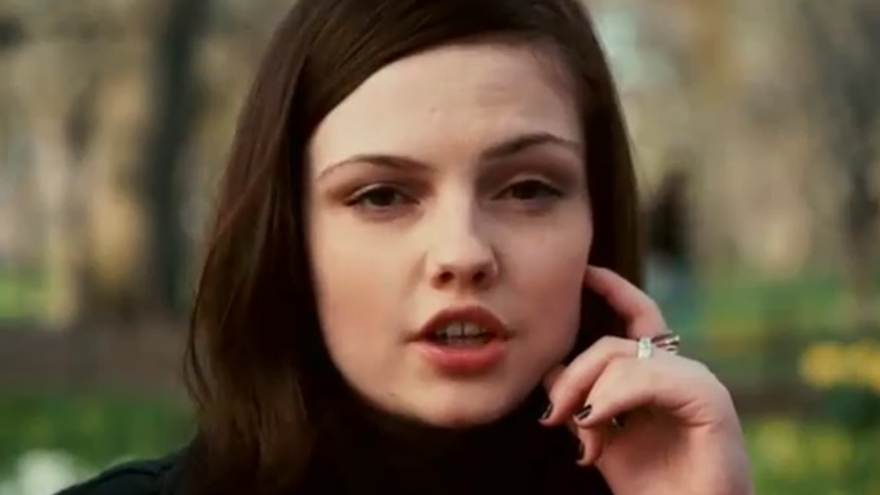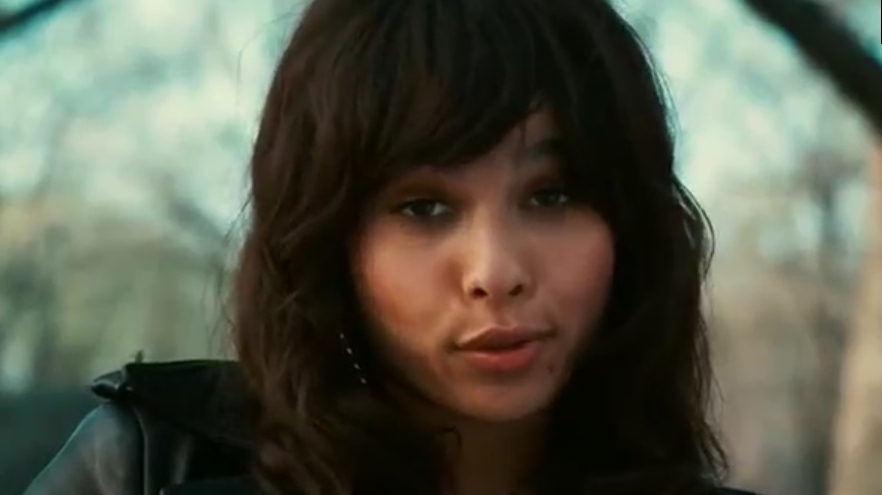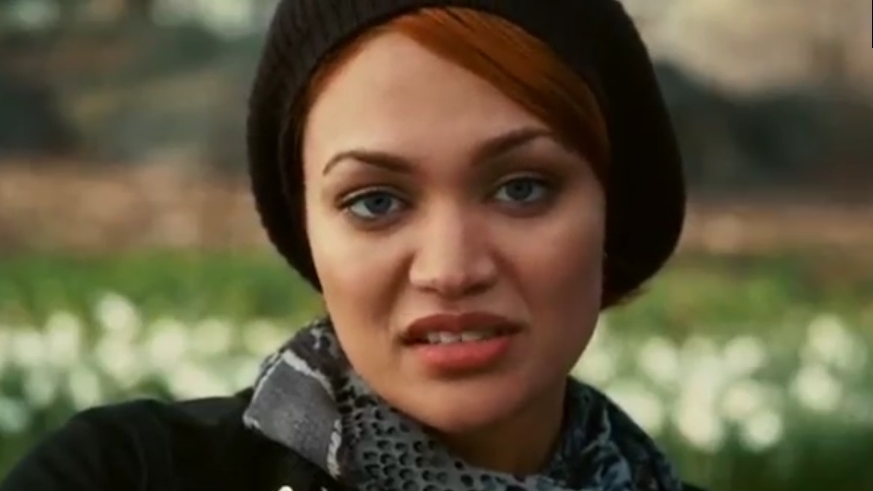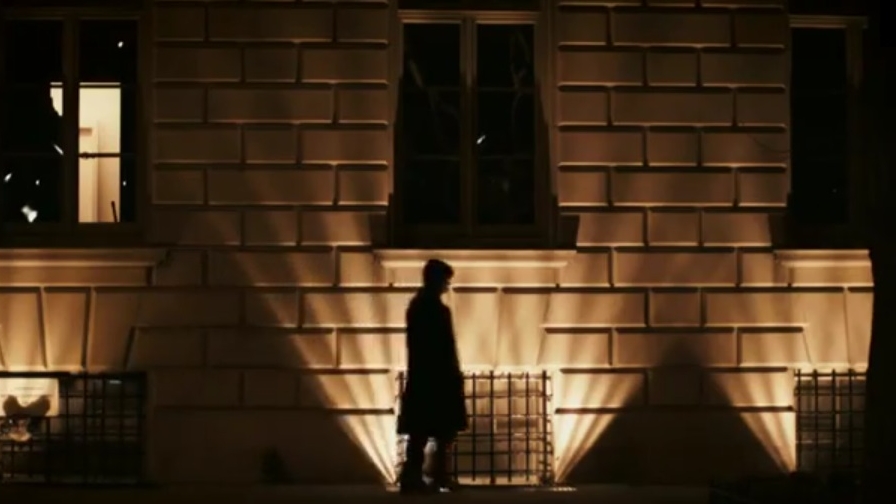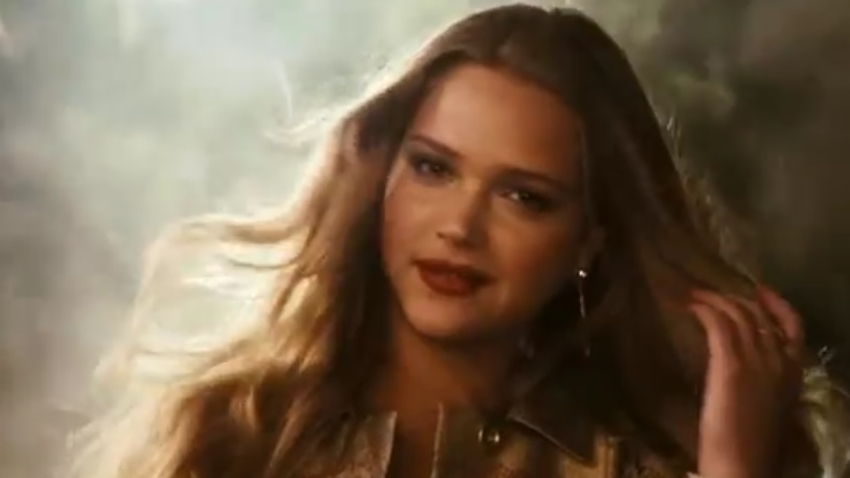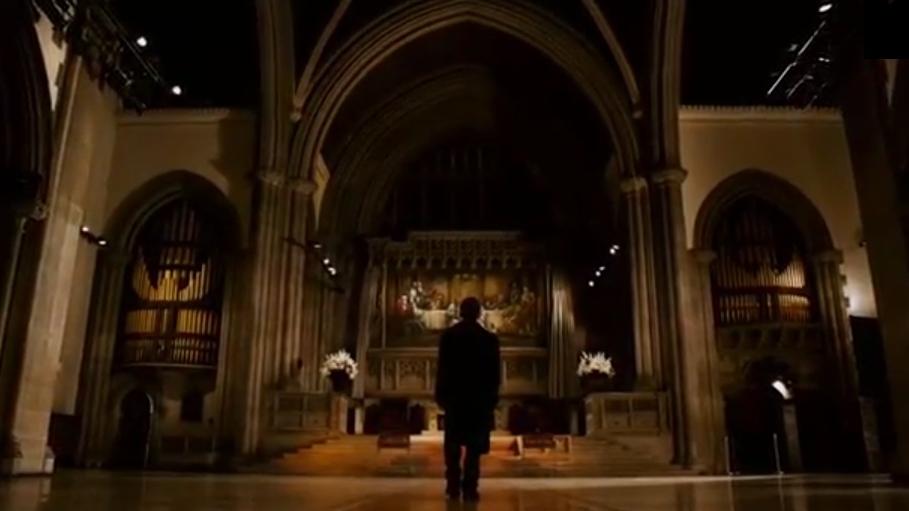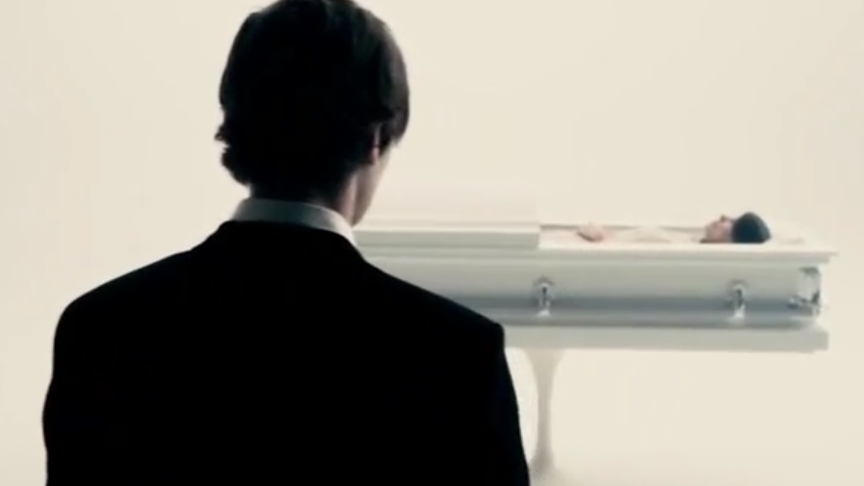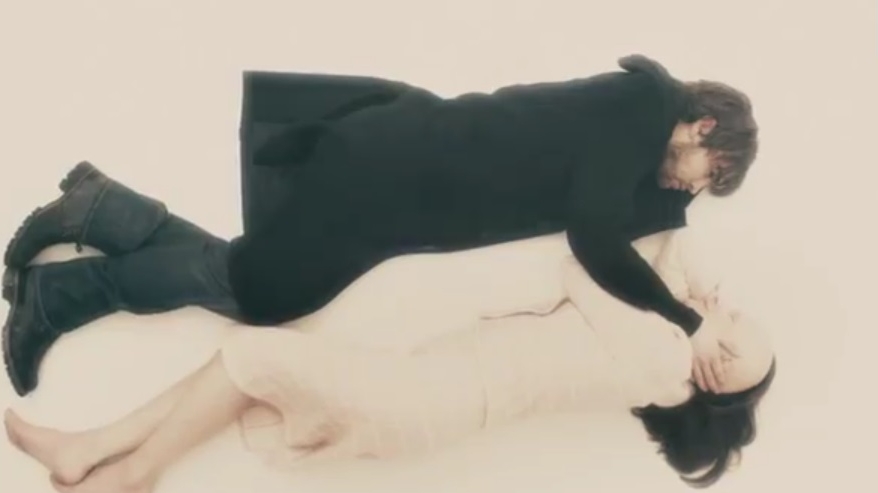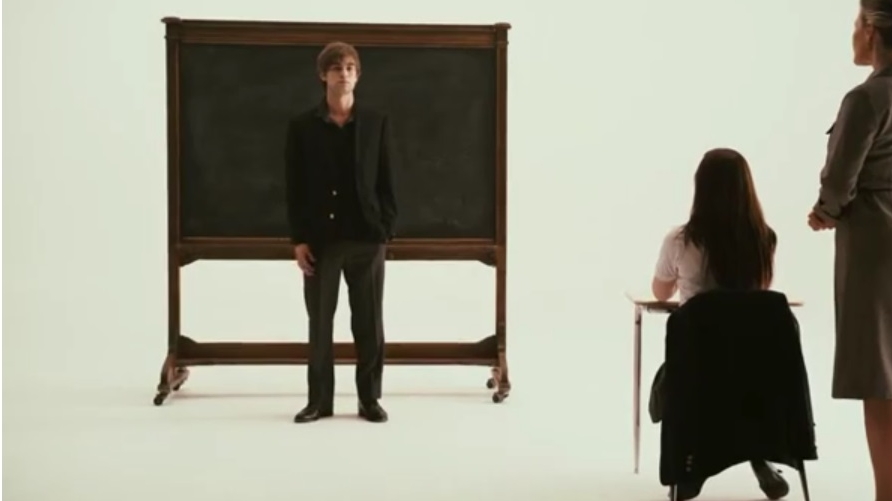Twelve (2010)
written by: Jordan Melame, based on the book by Nick McDonell
starring: Chace Crawford, Rory Culkin, Curtis Jackson (yes, 50 Cent himself), Emily Meade, Emma Roberts, so many other hot young things who are now TV stars.
In a world where we already have Gossip Girl and The O.C. and even all of Bret Easton Ellis' unpleasant oeuvre, do we really need a movie like Twelve?
Let me tell you right now-- the answer is pretty much a resounding No.
It's somewhat unfortunate, because there's some nice things happening in Twelve, in both style and performance. But I've read and seen too many stories about the struggles and strifes of rich white kids who aren't supervised enough. It's a common theme, and these days I don't have the most sympathy for it. There are certainly ways to make me feel sympathy for these kids, but Twelve doesn't quite find those.
Based on a book (which probably explains the very literary narration voiced by Kiefer Sutherland), Twelve is very much about a bunch of rich white kids who would do better with more attentive parents. Set free by their wealth and the negligence of their families, they do whatever they want without much worry over consequence. But this is the kind of movie that wants very badly for there to be consequence and punishment, and it wants us to care and feel something when bad actions have bad results. I don't know it if it works, and this might be partly a Me Problem. The movie itself produces mixed results, as they say. There are bad results, but I felt nothing. There are good people, and I felt next to nothing about them too. So what, I thought. Who cares?
(this is the last shot in the movie and the best and most acting Chace Crawford does)
More or less we follow Mike (Chace Crawford), who is very handsome and smart and charming and all that good stuff, but his mother has died and he's fucked up about it. So he dropped out of school and now he's dealing drugs to his former classmates. Sure. I didn’t exactly believe that he was particularly torn up by that tragic event in his life, and I can’t decide if that’s Crawford’s fault or the script or what. Crawford is a very handsome boy, it’s true, but his face doesn’t reveal much and Mike doesn’t seem to really feel that much, most of the time. By the time he crawled into an open construction hole to imagine what a grave was like, I thought he was being a bit melodramatic; by the time he uses that as an example of how hard he has it and how messed up he is, I decided he was being more-or-less brat.
When the greatest consequence for Mike is supposed to be that his nice friend Molly (Emma Roberts) turns her back on him, is that supposed to mean much to me? It felt like an avoidable problem. Mike is selling drugs because he wants to, not because he needs to. He doesn’t need the money. He just wants to be doing something a little dangerous, maybe, or he needs something to fill his time while he scumbums around. It never felt to me like he was spiraling, or that I should root for any kind of redemption from him. He never felt all that sullied. Maybe Crawford is too pretty.
But to be fair, it’s not all about Mike. Twelve is an ensemble piece… sort of. There certainly are lots of other characters. There’s Jessica (Emily Meade), a decently nice girl who gets hooked on drugs and then makes some bad choices in order to get more drugs. There’s Chris (Rory Culkin), who throws parties the popular kids attend in the hopes that they’ll like him, and his brother Claude (Billy Magnussen), a deeply unwell young man who likes swords too much. There’s the popular girls (who include Zoë Kravitz in a small role), lead by Sara Ludlow (Esti Ginzburg), a beautiful girl who knows she’s beautiful and uses her looks for tricks. There’s also like, six other characters we’re supposed to know and care about.
The problem is we don’t spend enough time with any of them to care about them. It’s a quick little movie and we glance over so many characters and none of them feel particularly fully drawn. It’s all very shallow and brief— what I’ve said of them above is about all there is to each of them. In fact, some of them I can barely remember to tell apart. The one’s who stand out are the one’s who have gone on to have further careers. I recognize Billy Magnussen and Rory Culkin, so I noted their characters. (Magnussen, I have to say, masterfully underplays some of the best moments in this movie. He’s a star in everything he’s in, and I’m always so glad when he pops up in movies) I can see why you’d want Schumacher for this kind of script— he excelled at the Rich White Kid ensemble picture with St. Elmo’s Fire— but this script doesn’t give him enough to work with. The difference between St. Elmo’s Fire and Twelve isn’t just that Twelve has too many characters. It’s also that none of them seem to like each other. That’s the magic that makes things like St. Elmo’s Fire, or even Friends work— the characters might be jerks, but they like each other. In liking each other, they convince the audience that there’s something likeable there, and next thing you know, we like them too. That’s not done in Twelve. These people barely seem to know each other, let alone like each other. It makes for an empty well of a film. Schumacher’s doing his best, and his little touches make the movie at least not totally boring, but man.... a slightly richer script and this movie could be good!
Speaking of the script: a note on the narration— usually an overwrought and tired device, I rather liked the voice-over narration in this movie. It has the removed, heightened quality of literary remembrance, like books written about the high school experience by adults. It is lofty, trying for importance, but also the casual notice of a detail here, a character fact there. It’s poetic in the dumb-fancy way you talk to yourself when you imagine you might write a book. It feels like the kind of narration some of these kids would give when they grow a little older. To that end, Kiefer’s soft-gravel voice does the trick. Wry and removed, he voices the balance between pretension and mundanity.
Sometimes the trick of a movie about privileged kids is just to not show the other side. But Twelve seems to think it has some commentary to make on wealth, and spends just enough time with kids in harder circumstances to undercut whatever sympathy it might have been able to garner for it’s well-off protagonists. In fact, the character I was most interested in was Lionel (Curtis Jackson), a drug dealer who provides to Mike and ends up selling directly to his friends. This might be the star power of the artist also known as 50 Cent, but Lionel is a more engaging character than most of the young people. He has complications to him that are more interesting than the surface high school drama of Upper East Side party kids.
Really this movie is amazing for it’s cast— many of which are now hot TV stars. Schumacher has always had that amazing eye for talent, and here it is again. Aside from Chace Crawford, who was already midway through his run on Gossip Girl, and Culkin and Kravitz, there’s Emma Roberts making a good show for herself, a year before Scream 4. There’s Nico Tortorella in his first movie role (also a year before Scream 4); here’s Billy Magnussen, well before he was even well known on Broadway, who is only know starting to really make it in movies. You’ve got Jeremy Allen White and Finn Wittrock. It’s a cast where, watching the movie now, I kept going “oh! Look who it is! Oh! Oh!” That’s sortof fun, and while a lot of that must fall on a very good casting director, Schumacher has always had an eye for an upcoming hot young thing, and this movie is no exception there.
Visually, then, how does the movie fare? Not badly. It’s handsome enough, most scenes richly shot and mainly on what appear to be location in New York. There are sickly green scenes in Chinatown, where Claude buys his dangerous, illicit weaponry. There are bright streaks of red blood and rushes of white fog. This felt like the most expressive scene lighting since Flatliners, almost, wasted on a thin, dumb plot. Lighting comes and goes as needed to emphasize a moment or an emotion. Colors bleed in and out. People are, as always, lit beautifully. Sara Ludlow literally glows. There are stark white bathrooms and deeply shadowed faces. There are gorgeous looks straight down the barrel of the camera.
These little touches are very Joel, and make this movie more interesting than it has much of a right to be. There is the occasional funny camera move (though nothing as impressive or stately as we’ve seen in other pictures) and all his sets and locations are rich and lovingly captured. His lighting, as ever, is pristine and perfect in each moment. It’s handsome. It’s, in the classic sideways-compliment, sideways-insult way, quote-unquote Well Made. And then those touches come, and you remember exactly who you’re watching.
The best touch for me are moments where the world boils down to nothingness— a white scene with one thing it. The focus of that touch is lovely, and it’s truly an artistic touch. Mike and his mom, Jessica listening to Mike in a classroom. The room is nothing but characters in space. It’s a rather beautiful and simple thing. These moments aren’t over used, but they are pretty neat when they are used. It’s a simple convention, all black and and white, and it is such a visceral difference from the rich darkness of the rest of the movie. It’s dreamy, and that dreamy quality gives some needed softness.
So the movie is… so-la-la. Nothing too special. Not terrible, and while I’m sure there’s more to be said about it’s social commentary and engagement (or lack thereof) with class inequity, I don’t feel like going into it. It’s an okay movie. Not one I’ll revisit again, probably ever. Those Schumacher touches are what give it any life at all, and I’m glad for them. And, in all truth, the movie ends on that most classic and wonderful of Schumacher touches— two people looking each other in the face and feeling something. It is lovingly, beautifully captured on camera in two tight, dead-on closeups. Schumacher has always loved looking at faces, and he knows how to make those faces look their best and feel their best. Twelve is no exception. It might even be a masterclass in capturing beautiful faces.
He nails the ending, which matters perhaps most of all. Twelve is not great, no, but it proved to me that Schumacher has not stopped being great when he wants to turn it on.
My dude’s still got it.
Overall: ★ ★
Schumacherness: ★ ★ ★
Up next (and last!): Trespass (2011)



